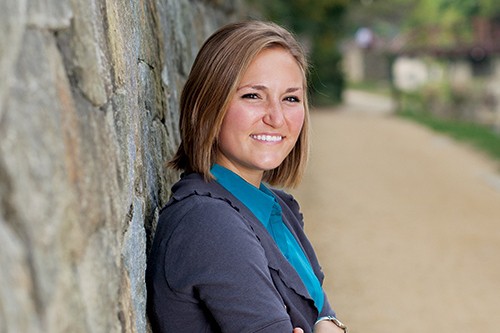
Each year 3.4 million people die from water-related disease and most of them are less than 5 years old. “The children are most likely to die from the pathogens in the water and it is heartbreaking,” says Lauren Vorisek, RD.
After moving to Washington, D.C. to attend George Washington University, Vorisek heard about a program sponsored by Community Water Solutions to bring clean water to Ghana. Pursuing a master’s degree in global health design monitoring and evaluation, Vorisek was happy to take advantage of a program that would give her experience working abroad.
“Clean water is obviously a really important human right, so I was drawn to the experience,” Vorisek says.
In 2012, Vorisek flew to Ghana for the three-week program. “It is pretty intensive. You are going into the villages, setting up a clean water system. What is hoped to be accomplished is to create a sustainable system for providing clean water to these villages.”
Upon arrival in Tindan, the village she was assigned to, Vorisek and other members of the team met with the village’s chief to explain the process. The chief decides whether to proceed with the program.
In many villages the water supply is a turbid dug out pond. “We test the water for E. coli and other bacteria, and it is contaminated,” Vorisek says. “It is making people sick and they know it. They are generally receptive to our program.”
The village selected two women to be trained to run the water treatment center, which consisted of building a stand from concrete and bricks, then cleaning and sanitizing the water in two steps.
“Once we opened the water treatment system, we went around to every house in the 65-household village and made sure they had safe storages containers for the water,” says Vorisek. Community Water Supply has monitoring and evaluation teams that regularly visit participating villages to make sure the systems are functioning properly and that the water still is clean.
Vorisek says the program motivated her to want to continue to pursue a career in international health program development. “I think it is really easy to overlook problems that are happening globally. Access to clean water is something we don’t think about here because we just walk over and turn on the sink,” Vorisek says. “But for so many people it still is a really big problem. If people can get involved with the program it is a great cause. It is really life changing for people when they get access to clean water.”
